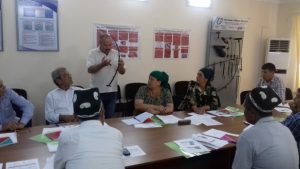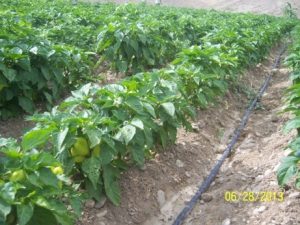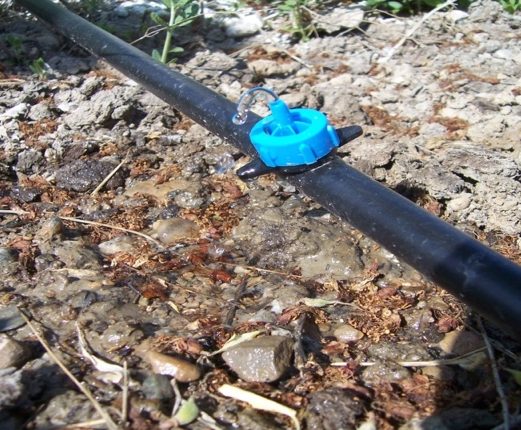Market research about Micro-Irrigation Technologies (MITs) conducted in Tajikistan throughout 2013 showed that there exists significant potential for the expansion of drip irrigation technologies in four agricultural subsectors: greenhouses, open-field vegetables, orchards and household plots. Drip irrigation, which consumes up to 80% less water (compared to furrow irrigation), will save crops and trees from getting stressed at the height of the irrigation season when irrigation water is not enough, due to a limited supply of electricity or farms are located far from the irrigation canal, etc. Also, data collection at demo plots for drip irrigation in apricot orchards have shown around a 30% of harvest increase per tree in terms of weight as well as considerably faster growth, if young trees are irrigated through drip irrigation systems and thus less exposed to irrigation water stress. First apricot fruit harvests can thus be expected already in the third year, whereas under conventional agricultural techniques, this usually takes four to five years.
At the end of the project, number of MIT suppliers, clients and amount of sales has been increased three times, and area under drip irrigation system has been increased five times.
 |
 |
|
Use case |
Access to market | Sustainable farming |
|
Funding |
HELVETAS / iDE |
|
Focus Area |
Development goal of the project is to create a financially self-sustaining market for MITs until 2016 |
|
Duration |
March 15, 2014 – January 31, 2016 |
|
Coverage |
Tajikistan |
|
Beneficiaries |
MIT suppliers, farmers, extension specialists |
|
Partners |
— |
|
Key activities |
|






